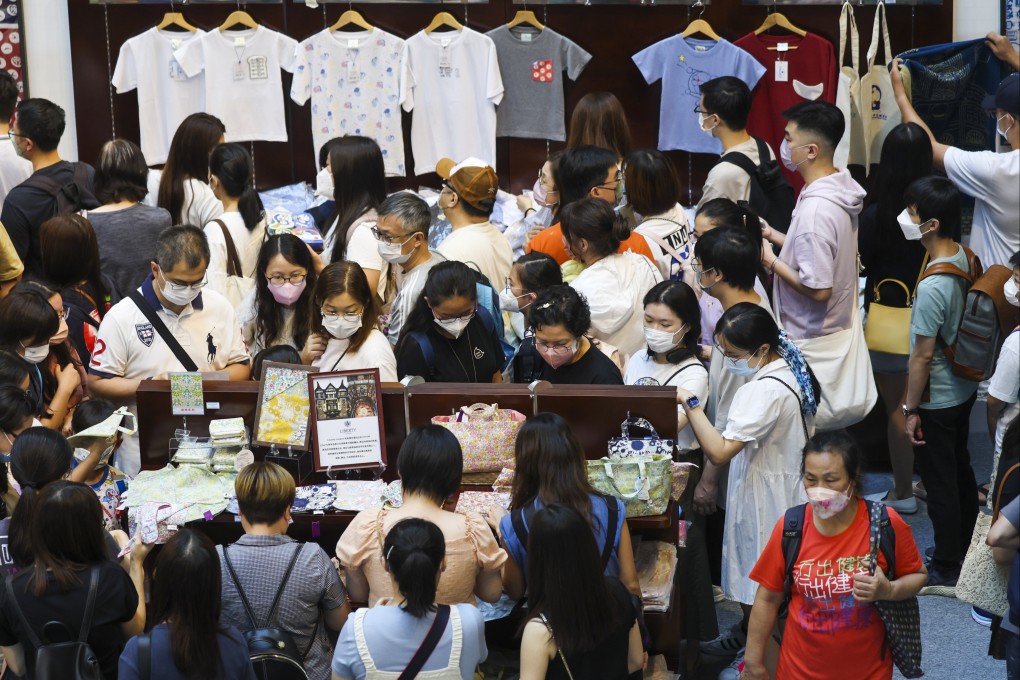Advertisement
Letters | Hong Kong’s budget must help the needy, not fund shopping sprees for all
- Readers discuss calls for another round of consumption vouchers, and a government initiative to attract tourists to Hong Kong
Reading Time:3 minutes
Why you can trust SCMP

Feel strongly about these letters, or any other aspects of the news? Share your views by emailing us your Letter to the Editor at [email protected] or filling in this Google form. Submissions should not exceed 400 words, and must include your full name and address, plus a phone number for verification.
The 2023-24 budget will be announced later this month. Some political parties have irresponsibly pushed for another round of consumption vouchers. This ignores Hong Kong’s expected budget deficit and will hamper the city’s recovery.
According to Article 107 of the Basic Law, “The Hong Kong Special Administrative Region shall follow the principle of keeping the expenditure within the limits of revenues in drawing up its budget, and strive to achieve a fiscal balance, avoid deficits and keep the budget commensurate with the growth rate of its gross domestic product.”
Advertisement
Our economy shrank by 6.5 per cent in 2020 following a 1.7 per cent contraction in 2019. Although there was a rebound in 2021, in 2022, the economy is expected to have contracted for the third time in four years because of the pandemic and geopolitical tensions. Furthermore, our financial secretary expects a budget deficit of more than HK$100 billion for the 2022-23 financial year. Given this and the pessimistic global economic outlook, voucher handouts would not only be imprudent but also could be unconstitutional.
With the reopening of the border with mainland China, demand for goods and services is likely to increase. The Hong Kong General Chamber of Commerce has predicted that the city’s economy can grow by up to 3.8 per cent in 2023. Consumer vouchers are a countercyclical measure whereby governments increase spending during an economic recession to stimulate demand.
Advertisement
The pandemic has exacerbated income disparity. According to Oxfam, in the first quarter of 2022, the median monthly income of the city’s poorest households fell by 22.9 per cent compared with 2019 while that of the richest rose by 6.3 per cent. I am not against increasing government spending but we should spend our communal money wisely and effectively.
From a personal perspective, who wouldn’t be happy to receive a cash or voucher handout? However, who really needs a helping hand? Should we risk our long-term ability to help those in real need to give the comfortably off a free shopping spree?
Advertisement
Select Voice
Select Speed
1.00x